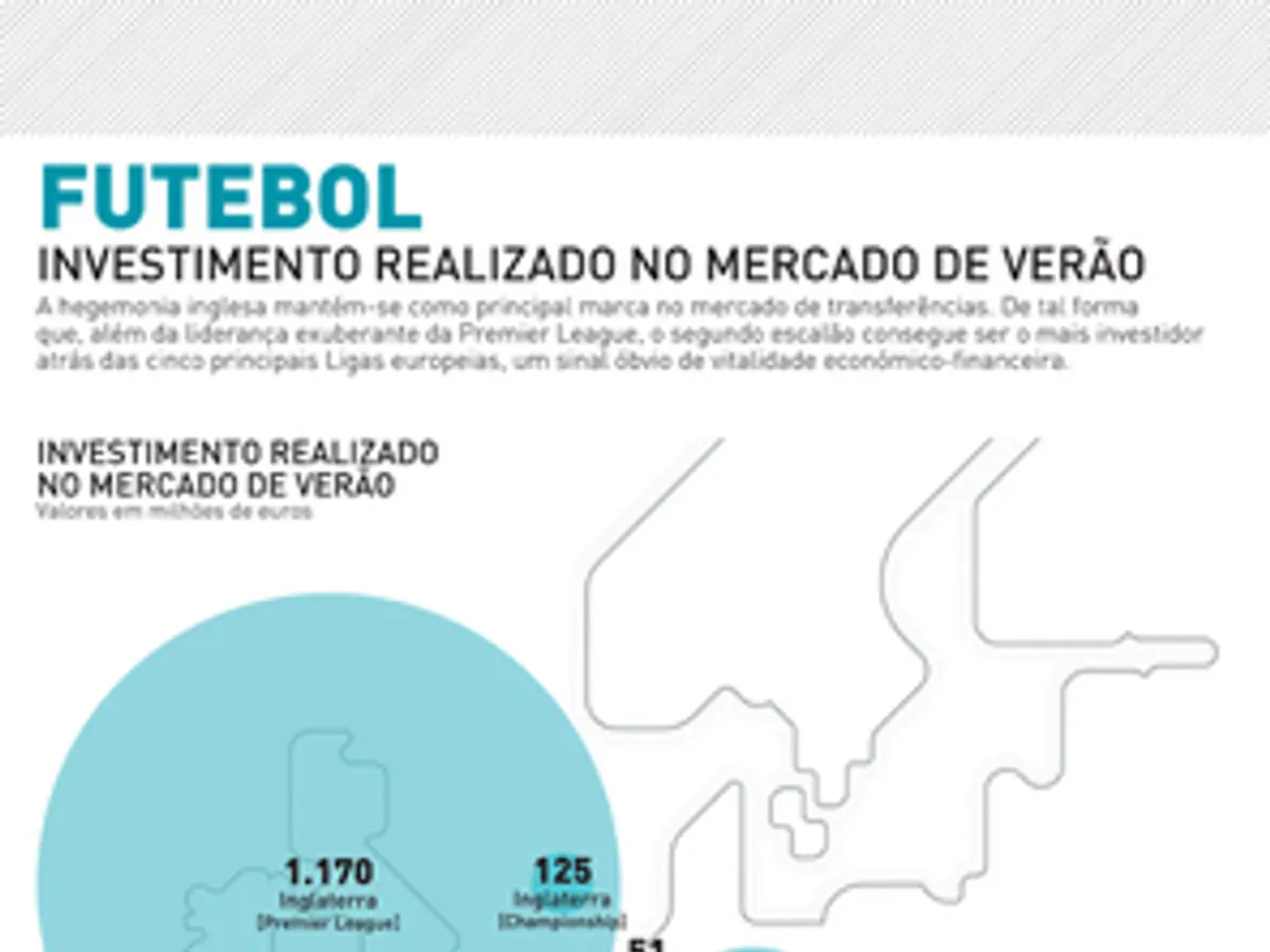Initial assessments on Trump's trade war's financial impacts
Too SWAGGERsome Guide to Trump's Tariffs:
I'll spill the beans on what happened when Donald "Dollar-sign" Trump slapped tariffs onto companies in the S&P 500, European STOXX 600, and Japanese Nikkei 225 indices in 2025. Talk about drama, eh?
Here's a lowdown on the chaos that ensued:
Death Blow to the Balance Sheets:First off, the study by Reuters uncovered thatTrump's tariffs cost these companies over $34 billion and hiked up their costs. Experts warn this number's gonna keep climbing, thanks to the uncertainty over Trump's trade policies destroying anyone's ability to plan.
Grumped Up Big Biz:42 corporations went ahead and lowered their profit predictions for the reporting season, while 16 heavyweights such as Apple, Ford, Porsche, Sony, and Volvo Cars threw in the towel, citing Trump's unpredictability. Other companies complained they couldn't divulge the truth or predict the future due to Trump's rollercoaster trade policies. What a mess!
Walmart vs. United Airlines:Walmart had the brass ones to refuse giving a quarterly profit forecast and announced higher prices, while United Airlines managed to ditch two different forecasts, asserting that it was damn near impossible to predict the economy for the year.
Trump's "Independence Day" Fiasco:Back in April, Trump declared "Independence Day" for the U.S. economy and shook things up by slapping "reciprocal" tariffs of 10-54% on products from over 180 countries, including major buddies like China, India, Japan, South Korea, the UK, and the EU. This move sent the financial markets tumbling, with the world's wealthiest seeing their wealth shrivel by $270 billion.
The Cash-grab Comes Under Scrutiny:Trump claimed his tariffs would shrink the trade deficit, bulge up the U.S. budget revenues, and protect U.S. producers. However, things didn't pan out as planned because the new tariffs hit sectors hard, such as automakers, airlines, and consumer goods importers, pushing up prices for raw materials and components. The importers didn't mince words, calling it a "global tariff war."
Mixed-up Revenues and Impact:It turns out the tariffs raked in at least $50 billion for the U.S. economy, according to the National Economic Council of the White House. Meanwhile, the negative effects were all too real, making for a messy situation.
Lurching Towards Deals:As previously reported by DK.RU, following the U.S.-China trade talks in Geneva in May, the White House agreed to slash tariffs on Chinese goods from 145% to 30% for 90 days as part of an agreement. Beijing, in return, dropped tariffs on U.S. goods from 125% to 10%. In addition, after chatting with European Commission President Ursula von der Leyen, Trump showed mercy to the EU, delaying increased tariffs on European goods until July 9, 2025.
Russian Roulette:Just a friendly heads up that Trump and Putin spoke over the phone in May and both leaders were pleased with the chat. But after the conversation, Trump hinted that he might step back from resolving the Russia-Ukraine conflict if they don't make progress. Moreover, he cooled his jets on tightening sanctions against Russia since he thinks there's still a shot at peace. But he warned that new restrictions would complicate matters.
Read more about this drama on DK.RU: MFA Russia stated readiness for the second round of direct talks with Ukraine in Istanbul.
Stay in the Loop:Sign up for the Zen Zen.News email newsletter, join us on Telegram, or check us out on VKontakte to get all the latest scoops.
References:[1] https://www.cnbc.com/2019/03/08/trump-proposes-steel-and-aluminum-tariffs.html
[2] https://www.bloombergquint.com/onweb/live-u-s-stocks-post-broad-gain-as-nasdaq-hits-new-record#:~:text=U.S.%20stocks%20moved%20higher%20across,Financial%20Performance%20Indices%20:%200.4%20(S&P%20500)
[3] https://www.investopedia.com/terms/r/range-bound.asp
- The unexpected tariffs imposed by Donald "Dollar-sign" Trump in 2025 on various indices, such as the S&P 500, European STOXX 600, and Japanese Nikkei 225, disrupted the business and finance sectors, leading to a surge in costs for companies and a rise in the number of corporations adjusting their profit predictions.
- The unpredictability of Trump's tariffs and trade policies adversely affected several industry segments, including automakers, airlines, and consumer goods importers, causing an increase in prices for raw materials and components. This Global tariff war, as called by the importers, resulted in a significant fall in the financial markets and a shrinkage of wealth for the world's wealthiest.
- The trade policies implemented during Trump's presidency had a profound impact on politics and general news, influencing negotiations with key trade partners like China, the EU, and Russia. In the case of Russia, Trump hinted that he might refrain from engaging in resolving the Russia-Ukraine conflict, potentially exacerbating geopolitical tensions in that region.








